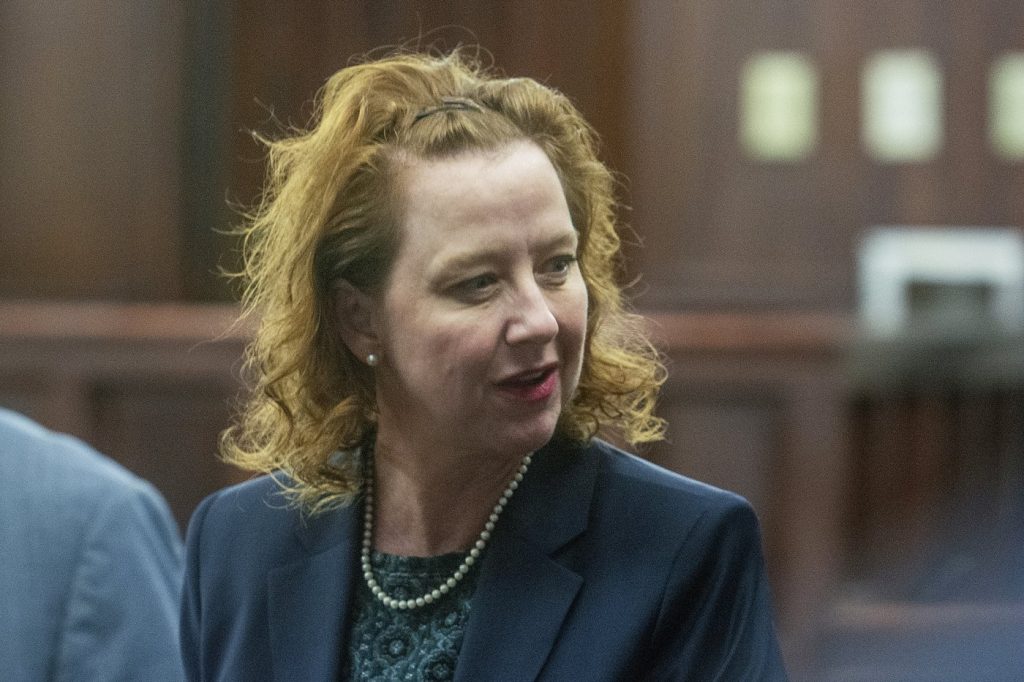SAVANNAH, Ga. (AP) Following the tragic death of Ahmaud Arbery on February 23, 2020, significant events unfolded that would lead to a widespread outcry and legal repercussions for various individuals involved. Arbery, a 25-year-old Black man, was shot and killed by Travis McMichael while he was running in the Satilla Shores subdivision in Glynn County, Georgia. The chase began when McMichael and his father, Greg McMichael, armed themselves and pursued Arbery, suspecting him of burglary. Their neighbor, William "Roddie" Bryan, joined the pursuit and recorded the incident on his cellphone, capturing the moment Travis McMichael shot Arbery at point-blank range during a struggle over his shotgun.
In the immediate aftermath, local police allowed the McMichaels to return home without arrest, based on Greg McMichael's claims that they were acting in self-defense. This incident report indicated that the McMichaels suspected Arbery was involved in theft from a construction site nearby. However, no evidence supported those claims, as police later found that Arbery was unarmed and had not committed any crime.
Two months later, a video of the shooting leaked online, sparking outrage and igniting a national conversation about racial injustice, especially following the high-profile killings of George Floyd and Breonna Taylor earlier in 2020. The Georgia Bureau of Investigation subsequently took over the case from local authorities, leading to the arrests of the McMichaels and Bryan.
At the time of the incident, District Attorney Jackie Johnson had been serving for a decade in the Brunswick Judicial Circuit. Due to her prior work relationship with Greg McMichael, she recused her office from the case. Johnson's recommendation for a neighboring prosecutor, George Barnhill, led to initial conclusions that the McMichaels acted legally. This conclusion prompted an investigation by the Georgia Attorney General’s office, particularly after it emerged that Barnhill had previously advised against arresting the McMichaels.
Following the public unrest surrounding Arbery's death, Johnson faced severe backlash and was ultimately ousted from her position in the November 2020 election. On September 2, 2021, a grand jury indicted her for charges associated with using her office to interfere with the investigation into Arbery's killing. She is charged with violating her oath of office and hindering police investigation by advising that Travis McMichael should not be arrested.
As of now, Johnson's trial is set to begin with jury selection scheduled to start on Tuesday in Brunswick, Georgia. A total of 500 residents of Glynn County were summoned for jury duty, a larger pool than usual, to ensure an impartial jury can be selected amidst the case's high profile. The jury will be extensively questioned about their exposure to information regarding the case. The lengthy wait for this trial, spanning over three years, was largely attributed to legal complexities and other commitments of Johnson's defense attorney, who was engaged in another high-profile trial.
The case surrounding Ahmaud Arbery's killing has not only brought to light issues of racial injustice and legal accountability but has also highlighted the complicated intersections of community relationships, local law enforcement, and the justice system. Johnson's impending trial will seek to uncover the extent of her involvement and the implications it holds for those who attempted to navigate the aftermath of Arbery's tragic death.











